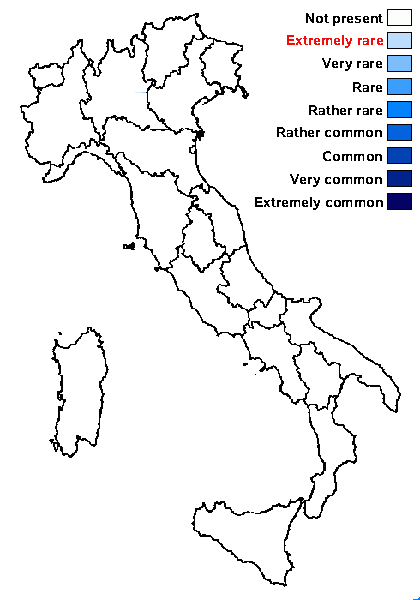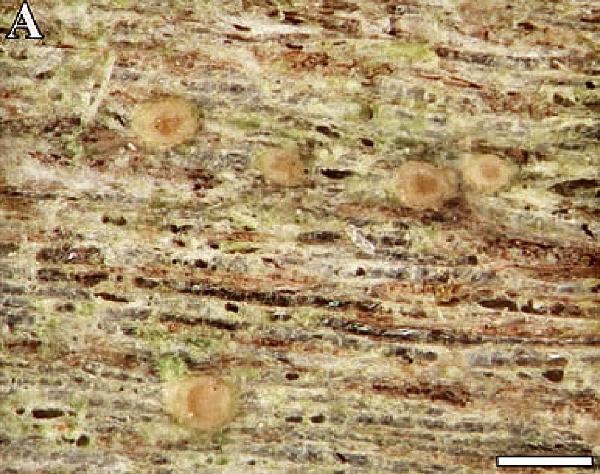Absconditella rubra van den Boom, M. Brand & Suija
Phytotaxa, 238, 3: 272, 2015
Synonyms:
Distribution:
Description: Thallus crustose, episubstratic, grey-green, forming small rounded patches. Apothecia round or weakly angular, 0.06-0.12 mm across, pale cream or orange to reddish-brown, with a slightly concave to usually flat, epruinose, sometimes umbonate disc and a smooth, persistent proper margin. Proper exciple 20-30 µm thick in upper part, thinner in lower part, the upper part orange, the rest colourless, of radially arranged hyphae, the outer rim more or less paraplectenchymatous, the cells with 1-1.5 µm wide lumina; epithecium pale orange, the pigment diffuse and in granules in intercellular spaces, K+ yellow-orange; hymenium colourless, 40-50 µm high, I+ yellowish, K/I-; paraphyses slender, 0.5.2 µm thick, indistinctly septate, strongly branched and anastomosing, the apical cells hardly swollen; hypothecium very thin, 8-12 µm high, colourless, of horizontally arranged hyphae. Asci 8-spored, long-cylindrical, thin-walled, the upper part with a distinct, K/I- apical dome penetrated by a long, narrow tube extending from the endoascus, with 2-seriately arranged spores. Ascospores 3-7-septate, hyaline, acicular-cylindrical, with blunt ends, straight or slightly curved, 33-40 x 1.2-1.8 μm, with very thin walls and septa. Photobiont chlorococcoid (mostly Coccomyxa-like algae), the cells usually 4-6 µm across. Spot tests: thallus K-, C-, KC-, P-. Chemistry: without lichen substances.Note: a recently-described epiphytic species found on broad-leaved trees and shrubs in open forests. Apparently widespread in Central Western Europe, the species, which is very easy to overlook, should be looked for also in Italy.
Growth form: Crustose
Substrata: bark
Photobiont: green algae other than Trentepohlia
Reproductive strategy: mainly sexual
Most common in areas with a humid-warm climate (e.g. most of Tyrrenian Italy)

Predictive model
Growth form: Crustose
Substrata: bark
Photobiont: green algae other than Trentepohlia
Reproductive strategy: mainly sexual
Most common in areas with a humid-warm climate (e.g. most of Tyrrenian Italy)

Predictive model


